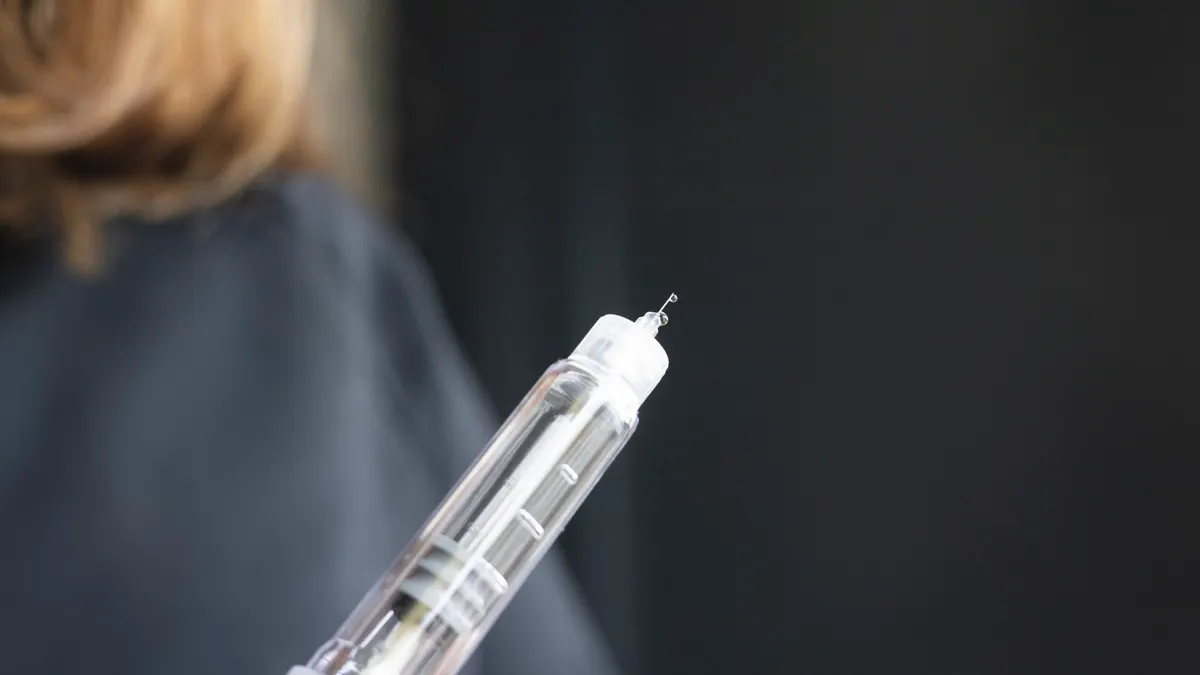Women’s health investment has yo-yoed in recent years, but broadening and rethinking how pharma defines the sector could invite more interest — and move the needle on key health challenges.
Organon, a 2021 Merck & Co. spinout focused entirely on women’s health, is putting that broader focus into practice.
“Women’s health is far too narrowly defined as the reproductive time of a woman. We recognize that we need to think about the [whole] health of women,” said Dr. Charlotte Owens, head of medical affairs and outcomes research at Organon. “We consider women’s health to be conditions that not only affect women, but affect women disproportionately, differently or exclusively, which takes us well beyond the reproductive focus.”
Its portfolio contains “traditional” women’s health products, like the birth control NuvaRing, as well as ones that widen that definition, like the statin Vytorin for high cholesterol, a condition that’s underdiagnosed and undertreated in women.
Data supports the need to redefine women’s health.
A McKinsey Health Institute report published earlier this year and co-authored by Valentina Sartori showed that sexual and reproductive health combined with maternal, newborn and child health account for just 5% of women’s health burden, while 56% of the burden comes from conditions more prevalent or manifested differently in women, such as headache disorders, autoimmune diseases, atrial fibrillation and colon cancer.
“If I look at your immunology portfolio, or your cancer … or cardiovascular portfolio, you’re in there,” Sartori told PharmaVoice of pharma companies that don’t think they’re operating in the women’s health space.
“It’s time for us to recognize that women’s health is all encompassing and has this broader societal impact."

Charlotte Owens
Head, medical affairs, outcomes research, Organon
That broader focus could improve maternal mortality too, by showing there’s more to consider than the 40 weeks of pregnancy, Owens said.
As a clinician, she should know. Even after nearly two decades in pharma — before coming to Organon a year ago, she had stints at Takeda, AbbVie and Kimberly-Clark Corporation — Owens has kept up a clinical practice to help her understand how the industry affects her community.
“It's why I continue to be an ethicist and adjunct clinical professor of obstetrics and gynecology at Morehouse School of Medicine, where I've been for more than 12 years,” she said.
As a physician, she’s witnessed the impact of a woman’s overall health on pregnancy.
“The health of a woman prior to childbirth dictates a lot of how the pregnancy will go and how healthy she’ll be after,” she said. “That’s why thinking about the health of a woman holistically is important.”
She pointed to uncontrolled or undiagnosed conditions like hypertension, diabetes, endocrine disorders and obesity, as well as lifestyle factors like inadequate nutrition.
What’s even starker is that a whopping 80% of pregnancy-related deaths in the U.S. are preventable, according to CDC data.
‘Dismissed, downplayed, deprioritized’ in maternal mortality
The high rate of preventable pregnancy-related deaths tracks with how women’s health has been treated historically.
“Women’s needs are often dismissed, downplayed or even deprioritized,” Owens said.
She noted that women spend an average of nine years in poor health, which is 25% more than men, and are often diagnosed later than men across 700 conditions, including cancer. Women also weren’t required to be included in NIH-funded clinical trials until 1993. Even now, pregnant and lactating women are often excluded from clinical research.
Moreover, broader, community factors contribute to maternal mortality, too. For instance, more than 2.2 million American women live in “obstetric deserts” — counties without maternal healthcare services. In addition, 11.6% of women of childbearing age are uninsured in the U.S.
Both numbers are significant considering the maternal mortality data: In 2022 there were about 22 maternal deaths for every 100,000 live births in the U.S., which is far higher than rates in high-income countries. Additionally, almost two-thirds of maternal deaths in the U.S. occur during the postpartum period, up to 42 days following birth, showing the need for better access to ongoing care.
Like its approach to women’s health, Organon’s strategy for reducing maternal mortality is also broad. The company is tackling it directly with products like the Jada System device for postpartum hemorrhage, a leading cause of pregnancy-related death while also taking a more indirect approach through its efforts to prevent unplanned pregnancies, which account for nearly 50% of pregnancies worldwide.
Last year, the company launched Her Plan is Her Power, a three-year, $30 million community-driven program that aims to prevent 120 million unplanned pregnancies worldwide by 2030. It’s achieving this through grants, on-the-ground education, and product donations directly to communities and clinics with high unmet need.
Owens believes this focus on women’s health and maternal mortality isn’t just good for Organon’s business, but for economies and communities as a whole.
“It’s time for us to recognize that women's health is all encompassing and has this broader societal impact,” she said.

















